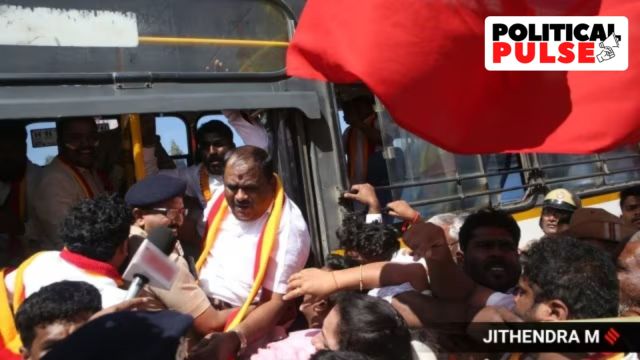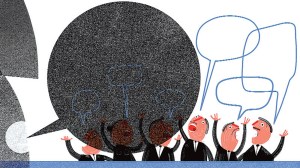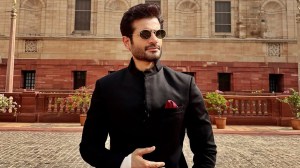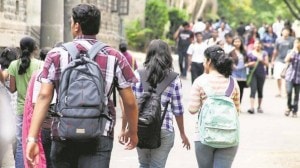‘Kannada caste, religion, god’: How Karnataka Rakshana Vedike has emerged as face of the state’s language war
The KRV’s influence and network, built over two decades, means parties have avoided locking horns with it, with Siddaramaiah govt equally cagey in response after the recent round of vandalism
 The police have registered five FIRs, detained hundreds of activists and arrested 28, including KRV president T A Narayana Gowda in connection with the incidents.
The police have registered five FIRs, detained hundreds of activists and arrested 28, including KRV president T A Narayana Gowda in connection with the incidents.The Karnataka Rakshana Vedike (KRV) yet again grabbed headlines on Wednesday after its members vandalised commercial establishments in Bengaluru and tore down non-Kannada signages, demanding 60% Kannada in them.
This is not the first time that the demand has been raised by pro-Kannada groups. However, Wednesday’s vandalism came after the state government directed all establishments to sport Kannada signboards prominently and the Bengaluru civic body – Bruhat Bengaluru Mahanagara Palike (BBMP) – set a February 28, 2024, deadline for the same.
The police have registered five FIRs, detained hundreds of activists and arrested 28, including KRV president T A Narayana Gowda in connection with the incidents.
The KRV is not the first pro-Kannada forum that came into existence after the formation of the state in 1956 but its network and fierce stance have helped it emerge as one of the most prominent ones post 2000. The KRV has been at the forefront of agitations over key issues like Hindi imposition by the Centre, the Cauvery water-sharing issue with neighbouring Tamil Nadu and the border dispute between Karnataka and Maharashtra for over two decades.
The outfit
With the motto ‘Kannada is caste, Kannada is religion and Kannada is god’, the KRV is the self-proclaimed guardian of everything involving the Kannada language. It claims to have 62 lakh members, takes a stand on Karnataka-related issues and does not hesitate to take law and order into its own hands.
Prior to 2005, the KRV’s influence was restricted to central Karnataka but it shot into the limelight after its members smeared then Belagavi City Corporation Mayor Vijay More’s face with black paint following a resolution to include the district in Maharashtra. Karnataka and Maharashtra have been involved in a bitter border dispute with Belagavi at the centre of the issue.
The organisation also “flexes its muscle” in politics and claims to have changed the political scenario in Belagavi. “Belagavi was a stronghold of the Maharashtra Ekikaran Samiti, which had 6-7 MLAs in the area. It was also influential in the city corporation. We managed to bring down their political power. We have also twice forced state governments to dissolve the corporation when it made decisions against the interests of Karnataka,” Sannerrappa said.
A pro-Kannada activist claims that due to the influence that the KRV wields, political parties too avoid locking horns with it. Apart from the cursory condemnation over Wednesday’s incident, there was no strong reaction from any major political parties of the state.
In fact, Deputy CM and Bengaluru development minister D K Shivakumar came up with a clarification on the issue saying, “There is a law which says signages should have 60% Kannada in them… Those living and doing business in Bengaluru should follow it.”
Union Parliamentary Affairs Minister Pralhad Joshi, who hails from Karnataka, too defended the demand. “This is not England,” he said in an interview to NDTV on Wednesday.
The Kannada sentiment
Since its inception, Karnataka has seen a pro-Kannada movement. In 1983, at a time when the state did not have a forum to fight for linguistic rights, then CM Ramakrishna Hegde constituted the Kannada Kavalu Samithi to protect the interests of the language. Notably, current CM Siddaramaiah was the body’s first president.
After the success of the Gokak agitation in the 1980s, which saw the participation of stalwarts like Dr Rajkumar, poets and writers, and resulted in Kannada becoming the first language of the state, pro-Kannada agitations faded out.
It was at this time in the early 2000s when Gowda, who hails from Hassan district, established the KRV in Bengaluru. He was a garment worker who later went on to own a garment factory and was actively involved with the Rajkumar fans’ association until he was removed in 1998 after allegedly assaulting a north India-based businessman and pelting stones at the police.
KRV is a staunch advocate of jobs in the state being given to “locals” and was also at the forefront of two-month long protests after no Kannadiga made it to the vacant 23 posts in the Comptroller and Auditor General (CAG) office. The Central government led by Atal Bihari Vajpayee subsequently gave in and roped in locals for the posts. This was the organisation’s first big success.
“There was a time when the police commissioner of Bengaluru City directed his personnel posted in areas with a high concentration of people speaking Tamil and Telugu to learn those languages. We also protested against him,” KRV General Secretary Sanneerappa says.
The KRV’s big success on the CAG issue coincided with the rise of Kannada new channels, which gave the protests continuous coverage, thus making the body a household name across the state. Subsequently, the KRV spread its wings outside Bengaluru and currently has over 20,000 units in different parts of Karnataka.
However, many people associated with the organisation have been accused of extortion, assault and other such crimes. The KRV’s former Bengaluru president broke away in 2006 over similar issues and floated the KRV (Praveen Shetty), one of the many splinter groups.
The KRV also claims credit over the end to Hindi announcements on the Bengaluru Metro. In 2017, the body launched campaigns like #NammaMetroHindiBeda (Our Metro, We do not want Hindi), following which announcements in Hindi were stopped. Notably, Siddaramaiah was also CM then and had later ordered withdrawal of cases against the members.



- 01
- 02
- 03
- 04
- 05



























